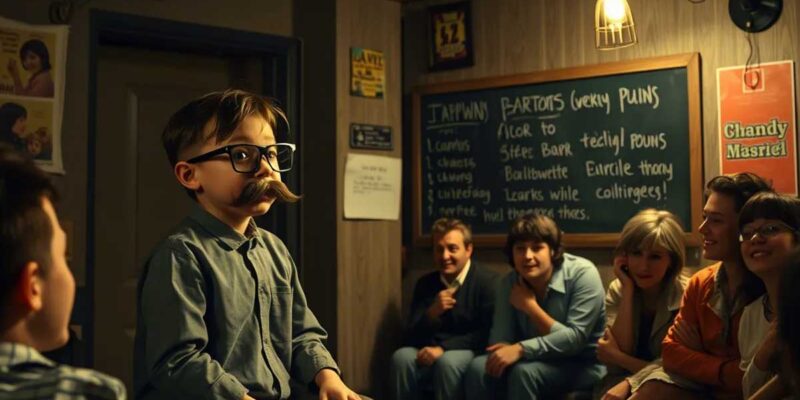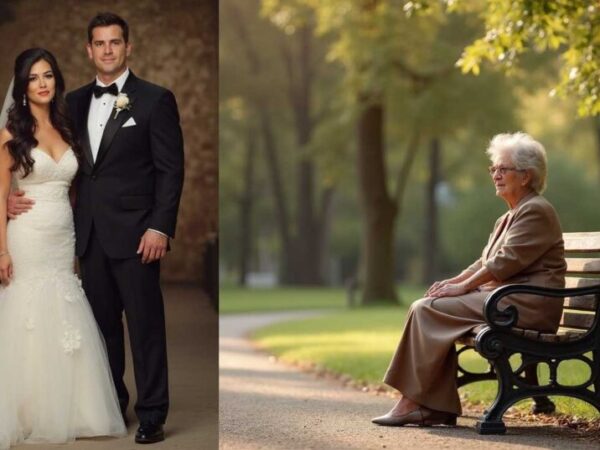Let’s be honest—we’ve all encountered that one friend who drops an orphan joke at the worst possible moment. You know the type. They’ll be scrolling through their phone, suddenly burst out laughing, and share something that makes half the room cringe while the other half can’t stop giggling.
Dark humor has this weird way of bringing out both the best and worst in people. And orphan jokes? Well, they’re probably sitting at the top of the “most controversial comedy” list right next to your uncle’s inappropriate Thanksgiving comments.
But here’s the thing—whether you love them or hate them, orphan jokes aren’t going anywhere. They’ve carved out their own little corner of the internet, spawning countless memes, Reddit threads, and TikTok videos. So maybe it’s time we actually talked about what they are and why they make some people laugh while making others want to throw their phones across the room.
What Are Orphan Jokes?
Alright, let’s start with the basics. Orphan jokes are exactly what they sound like—jokes that center around kids who don’t have parents. They’re part of that whole dark humor family tree (pun intended) that includes death jokes, disability humor, and pretty much anything your grandmother would wash your mouth out with soap for saying.
Most of these jokes follow a pretty predictable formula. They’ll take something normal families do and flip it on its head. Think “family photos” becoming “selfies” or “home pages” being completely foreign concepts. The humor comes from that awkward moment when you realize what just happened.
What makes orphan jokes different from your average dad joke is their laser focus on abandonment and loss. They’ve basically become the poster child for “too soon” humor, except the “too soon” never really goes away.
The internet has been a game-changer for this type of content. Platforms like Reddit have entire communities dedicated to sharing the latest orphan jokes, while TikTok users compete to see who can deliver the most shocking punchline with a straight face. It’s like a twisted comedy competition where the prize is going viral and the penalty is getting canceled.
The Psychology Behind Dark Humor
Ever wonder why your brain finds terrible things funny? You’re not broken—you’re just human. We’ve got this weird relationship with stuff that scares us or makes us uncomfortable. Instead of running away screaming, sometimes we just… laugh.
Psychologists have been scratching their heads over this for years. Their best guess? Dark humor is like emotional armor. When life throws something horrible at us, we can either cry about it or find a way to laugh. Guess which one feels better in the moment?
There’s also this whole tribal thing going on. When you laugh at an orphan joke, you’re basically sending a signal to everyone around you: “Hey, I’m part of the group that gets it.” It’s like a secret handshake, except instead of a handshake, it’s a joke about kids without parents. Classy, right?
But here’s where it gets interesting—sometimes the people laughing the hardest are the ones who’ve actually lived through similar experiences. It’s their way of taking back control, of saying “this terrible thing happened to me, but I’m not going to let it define me.” That’s either incredibly brave or incredibly messed up, depending on who you ask.
Common Types and Examples of Orphan Jokes
Orphan jokes come in a few different flavors, and once you know the patterns, you’ll start seeing them everywhere. It’s like learning to spot product placement in movies—suddenly you can’t unsee it.
The wordplay category is probably the most popular. These are your “Why do orphans suck at web design? They don’t know what a home page is” type jokes. They take everyday terms and give them a twisted family-related meaning. It’s clever in that “I hate myself for laughing” kind of way.
Then you’ve got situational humor, which drops orphans into normal scenarios and watches the chaos unfold. “What does an orphan call a family photo? A selfie.” The comedy comes from that moment when your brain processes what just happened and you realize you’re a terrible person for finding it funny.
Pop culture references are huge too, especially Batman jokes. The guy’s basically the poster child for successful orphans, so he shows up in these jokes constantly. “What did one orphan say to another? Robin, get in the Batmobile.” It works because everyone knows Batman’s backstory, so the reference lands immediately.
One-liners dominate the orphan joke landscape because they’re perfect for social media. “Why can’t orphans play baseball? They don’t know where home is.” Quick, punchy, and guaranteed to make you question your moral compass—exactly what the internet ordered.
The Ethics of Telling Orphan Jokes
Here’s where things get complicated. On one hand, comedy has always pushed boundaries and challenged social norms. On the other hand, we’re talking about making fun of kids who’ve experienced genuine trauma. It’s not exactly a clear-cut situation.
Context is everything with these jokes. Telling one to your college buddies during a late-night gaming session? Probably fine. Dropping one at a charity fundraiser for foster kids? Yeah, maybe read the room first.
The intent versus impact debate is real here. You might think you’re just being funny, but if someone in your audience has lived experience with the foster care system, your harmless joke might hit very differently. Good intentions don’t always equal good outcomes.
Most comedy experts suggest some basic ground rules: know your audience, be prepared to apologize if you mess up, and maybe have some backup material that doesn’t involve traumatized children. Revolutionary concepts, I know.
Why Orphan Jokes Are Controversial
The controversy around orphan jokes isn’t exactly rocket science. We’re talking about making light of one of the most traumatic experiences a kid can go through. Losing your parents isn’t just sad—it’s life-altering in ways most people can’t even imagine.
Real orphans deal with serious stuff: higher rates of mental health issues, educational challenges, social stigma, and a whole bunch of other problems that don’t make for great punchlines. When people joke about their situation, it can feel like society is laughing at their pain rather than with them.
Cultural differences make this even more complicated. What passes for edgy humor in one place might be deeply offensive somewhere else. Thanks to social media, your joke can travel around the world in seconds, landing in front of audiences you never intended to reach.
There’s also the whole “punching down” issue. When people with stable families make jokes about orphans, it can feel like bullying. It’s the comedy equivalent of picking on someone who’s already having a rough time.
The Therapeutic Value of Dark Humor
Before you write off orphan jokes completely, consider this: sometimes the people telling them are the ones who need them most. For some folks, particularly those who’ve been through the foster care system, these jokes can be a way of processing their experiences.
Humor has this weird power to take the sting out of painful memories. When someone who’s actually lived in group homes shares an orphan joke, they’re not making fun of orphans—they’re reclaiming their story. It’s like saying, “This happened to me, but I’m not going to let it break me.”
Online communities built around dark humor often become support networks in disguise. People share jokes, but they also share experiences, advice, and genuine emotional support. The humor becomes a gateway to deeper connections.
Some therapists actually use humor in their practice, though they’re way more careful about it than your average Reddit user. When done right, jokes about difficult topics can help people gain perspective and reduce the emotional charge around traumatic experiences.
When and Where to Share Orphan Jokes
Timing and location matter more than you might think when it comes to orphan jokes. Your group chat with college friends? Probably safe territory. Your company’s Slack channel? Maybe not so much.
Social media is particularly tricky because your audience is basically everyone you’ve ever met plus some random strangers. That orphan joke that kills with your gaming buddies might not land the same way with your high school teacher or your grandmother’s church friends.
Work environments are generally a no-go zone for this type of humor. The risk of creating an uncomfortable situation or offending a colleague far outweighs any potential laughs. Save the edgy content for your personal time.
The key is reading the room, which is harder than it sounds. Pay attention to how people react—not just the laughs, but the uncomfortable silences and forced smiles too. If someone seems bothered, it’s probably time to change the subject.
Alternatives to Orphan Jokes
If you love dark humor but want to avoid potentially harmful territory, there are plenty of other options. Self-deprecating humor is always a safe bet—make fun of yourself instead of vulnerable groups. At least then the only person you’re potentially hurting is you.
Observational comedy about everyday absurdities can scratch the same itch without the ethical complications. Point out the ridiculous aspects of modern life, technology, or social media. There’s plenty of material there, and nobody gets hurt in the process.
Absurdist humor is another great alternative. Jokes that are just completely bizarre or nonsensical can feel transgressive without targeting anyone specific. It’s like breaking social norms without actually breaking anyone’s heart.
The best comedians can make people laugh without relying on potentially harmful material. Challenge yourself to find humor in unexpected places while keeping your conscience intact. Your future self will probably thank you for it.
















